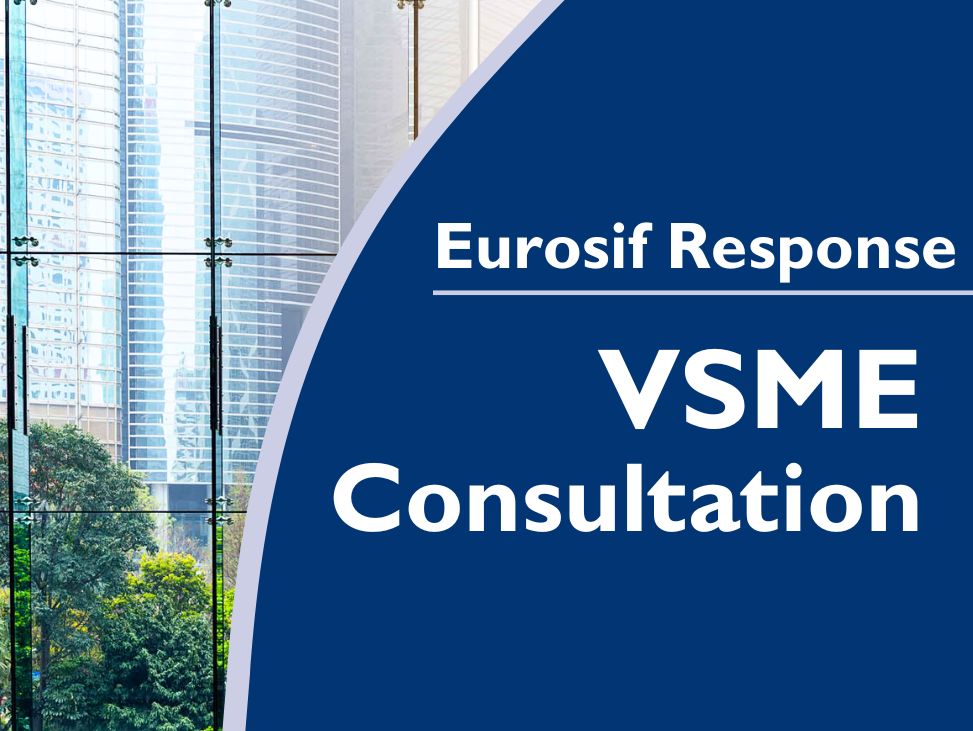Eurosif response to EFRAG’s consultation on Voluntary Sustainability Reporting Standards for non-listed SMEs (VSME)
Eurosif welcomes the goals ERFAG pursues with the Exposure Draft of the European Sustainability Reporting Standards for non-listed small and medium-size enterprises (VSME). Because of the vital role SMEs play in the European economy, supporting them in their sustainability reporting through simplified standards is important to accelerate the just transition to a sustainable economy.
Why do high-quality disclosures matter to financial institutions?
Comparable and reliable sustainability-related disclosures are essential for financial institutions to make informed financing decisions and ensure adequate risk management. They also need ESG data for their own reporting requirements under EU legislation, such as the Sustainable Finance Disclosure Regulation (SFDR), Pillar 3 and Solvency II.
Why do high-quality disclosures matter to SMEs?
Disclosures are an opportunity for SMEs to show their efforts, successes and progress regarding sustainability matters, improve their reputation and attract further capital. Currently, non-listed SMEs often receive numerous questionnaires from financial institutions and other business partners to fill in. This work can be significantly reduced by introducing a single standard, but only if the disclosures resulting from this standard contain all the information their business partners require.
Main recommendations for improvements:
While agree that simplified and bespoke standards are justified for non-listed SMEs which are usually much smaller and have limited resources, we think a structure that mirrors ESRS Set 1 more closely would be clearer for SMEs and the users of data.
To that end, we recommend EFRAG to re-organise the modules as follows:
-
- The basic module should include general disclosure requirements (corresponding to the ESRS 2 in the sector-agnostic ESRS) on how to report on sustainability matters and their management by policies, actions and targets, including an explanation on how to conduct and report on their materiality assessment. SMEs that do not have policies, actions and targets could simply state so.
- The second module should include a basic set of E, S and G metrics, i.e. select, standardised quantitative KPIs based on topical standards.
- Instead of Module 3, both module 1 and module 2 should include additional, clearly delimited disclosures stemming from SFDR/Benchmark Regulation/Pillar 3 disclosure requirements. SMEs may choose to report these additional disclosures or clearly indicate they have chosen not to.
Read our full response here: VSME Consultation Response
Read our response to the standards for listed SMEs here: LSME Consultation Response

